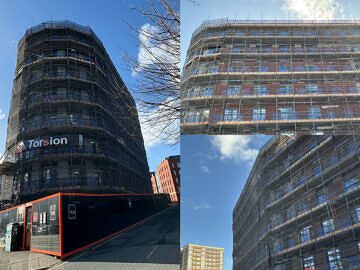Hamilton Director, Daniel Mackie, reacts to a Lords report on public inquiries:
“The BBC has revealed that a recent Lords report on public inquiries has raised questions about their effectiveness in driving real change.
I agree that while inquiries often generate recommendations, there is all too often a lack of follow-through. This has also been a criticism of the Grenfell Inquiry.
As we all know, The Grenfell Tower fire, which resulted in the tragic loss of 72 lives, was exacerbated by the use of non-compliant and highly flammable cladding.
The Grenfell Inquiry highlighted how the materials were chosen in part due to cost considerations and revealed countless failures in the selection and installation of the cladding plus the subsequent lack of oversight in safety regulation.
One key finding of the inquiry is that the focus on cost-cutting in construction has led to a “race to the bottom” in terms of safety standards.
The prioritisation of affordability over safety, along with poor regulatory enforcement, allowed dangerous materials like the cladding used on Grenfell to be widely used across the country.
In the aftermath of Grenfell, changes in regulations around cladding were slow to materialise. The Grenfell Inquiry’s revelations led widespread inspections and removals of similar dangerous cladding across the UK, but the pace of this remediation has been painfully slow with thousands of buildings still requiring updates.
This puts people at ongoing serious risk, highlighting the need for more accountability and faster action to ensure public safety
Despite regulatory changes, public inquiries such as Grenfell often struggle to ensure accountability. The current system does not always guarantee that findings lead to real reform.
Prime Minister, Sir Keir Starmer, has confirmed that the government will respond in full to all the recommendations of the inquiry within six months – but questions are being raised as to if this is fast enough.
The government has spent hundreds of millions of pounds on inquiries over recent decades, yet many recommendations remain unimplemented.
The Grenfell disaster shows how crucial it is for the construction industry and regulators to prioritise safety rather than cutting corners to reduce costs.
Cladding safety must be at the forefront of every construction project.
Grenfell has shown that lives should never be compromised for the sake of savings and any failure to act on these lessons could have further devastating consequences.
The inquiry’s findings should drive home the message that the industry must improve transparency and accountability in how it handles construction and safety standards. Recommendations need to be swiftly acted upon and embraced by the entire supply chain while work to replace dangerous cladding across the UK must speed up.”
For further opinion pieces on this subject, stay tuned to our news feed.



